#picaresque
Text
I agree that the preoccupation with continuity in media, particularly literary media, has gone too far, but I think calls to return to standalone novels as the norm don't go far enough. I think we should bring back the picaresque – like, fuck self-contained novels, I want self-contained individual scenes. I want to be able to start reading a book with a chapter selected entirely at random and not feel that any essential context has been lost.
1K notes
·
View notes
Text
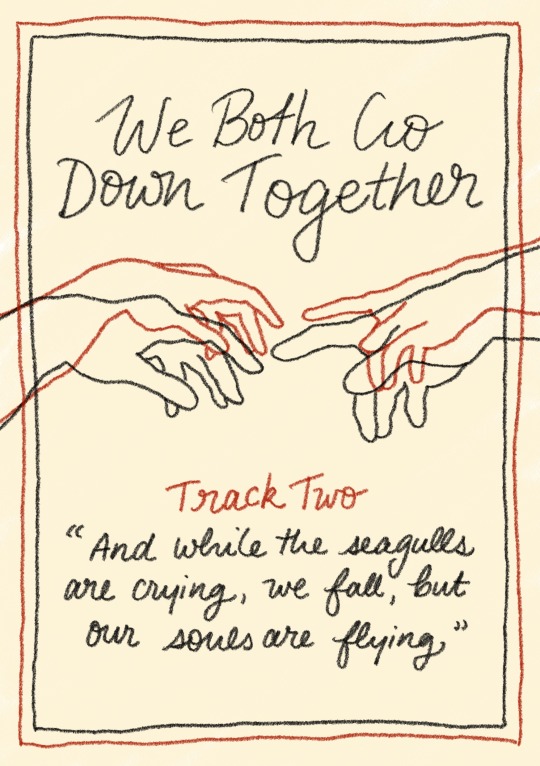
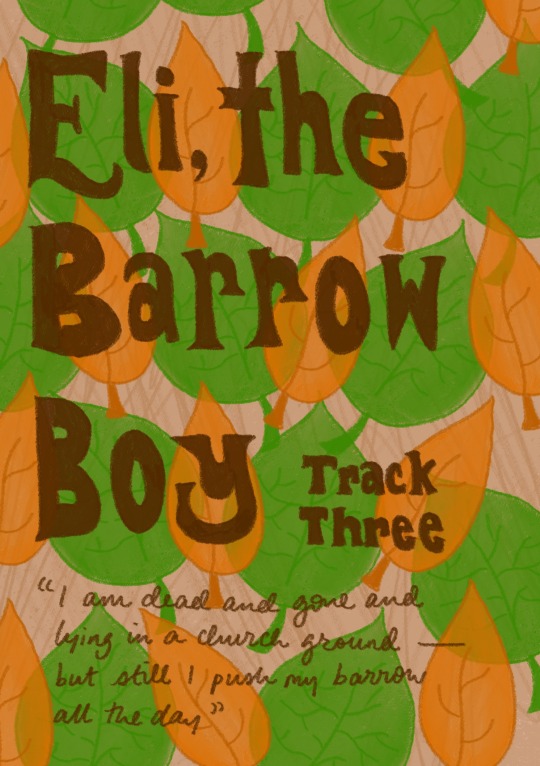



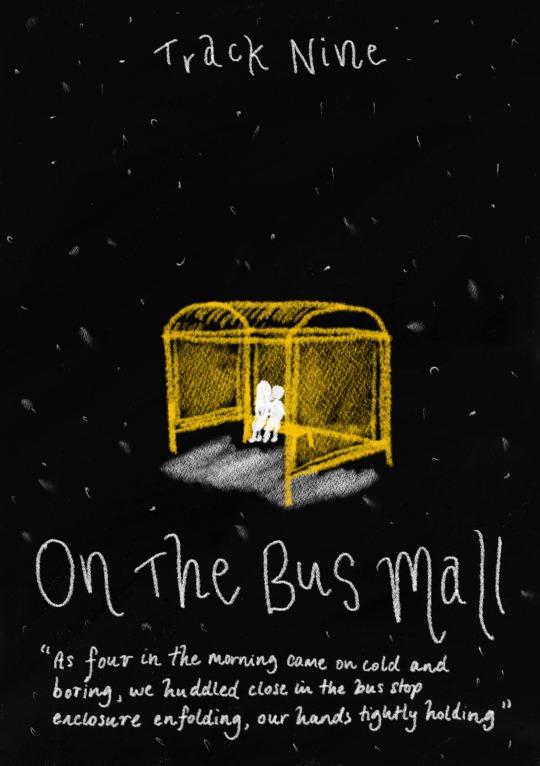
songs from picaresque (2005) as posters :-)
#this will probably get 0 notes but i dont care !!!!! i have the most severe picaresque brain rot#i drew ones for all the songs but these r my faves :-)#yes these posters are for a bday present for my bf but i will be making more picaresque content till my fixation subsides#these will go on my ig after his bday so he doesnt get spoiled#who knows maybe ill just move onto another decemberists album afterwards lmao#anyway !!!!!!! i love this album. god#the decemberists#colin meloy#picaresque#i really need an umbrella tag for my all my own shit lol
149 notes
·
View notes
Text
A Decemberists poll

31 notes
·
View notes
Text
no eps or anniversary editions, just how it was when it came out!
#but maybe i will do an eps one if people like this one :)#i won’t lie. i do not know what i’m gonna vote for ncnfndn#the decemberists#as it ever was so it will be again#her majesty the decemberists#castaways and cutouts#picaresque#the crane wife#hazards of love#the king is dead#what a terrible world what a beautiful world#i’ll be your girl#molly's musings#my polls
10 notes
·
View notes
Text
The First Picaresque Novel

"My name is Lazarillo de Tormes"
A highly provocative opening sentence! Especially for an educated 16th century reader, who can understand what that name means. Like the heroes of chivalric romances, the narrator bears a name that denotes his destination; here, Lazarus determines his destiny – the patron saint of lepers and beggars*.
In a Spain obsessed with purity of blood, Lazarillo does not hesitate to confess his racially** and socially suspect origin: his father was a miller and had been convicted for "bleeding the sacks" of his customers' grain; his mother got in trouble for her relation with a black man of questionable morals*** who visited her repeatedly, resulting in the birth of Lazarillo's little brother: "a black baby boy, beautiful".
No noble titles, no property, no respectable origins: who is this man who boasts of his obscure descent, as if it were a badge of honour? A rogue! A pícaro!
In 1554, a short and anonymous autobiography gets published simultaneously in Burgos, in Alcalá de Henares, and in Antwerp: La Vida de Lazarillo de Tormes (The Life of Lazarillo from Tormes), an incredible work, which isn't about some shepherd's loves or some knight's feats, as was the trend, but about a poor man's life.
The book's biography is almost as adventurous as the protagonist's. After an initial triumph, it ended up in the list of forbidden books. A censored version was released in 1573, omitting all impious allusions to misbehaving clerics: such a critique, reminiscent of anti-clerical satires that were common in medieval fabliaux, hit differently after the 15th century, when Europe was in turmoil due to religious disputes.
— Annick Benoit & Guy Fontaine (ed), Lettres européennes: Manuel d'histoire de la littérature européenne (1992, Hachette Education)
NOTES:
* i.e. the beggar from the "rich man and Lazarus" parable, though other researchers think it's a different Lazarus, the famous one from Bethany who got resurrected; or perhaps the anonymous author didn't actually care to subvert chivalric tropes, and simply chose a random humble-sounding name
** newer research suggests that the early picaresque novels usually have protagonists and/or authors who were new Christians, i.e. of Jewish or Moorish descent: when the genre appeared, Spain had already expelled or forcibly converted all Jews and Muslims, and treated those who converted and stayed as second class citizens, so this is a distinct underclass
*** "questionable morals" because he brought her stolen food
**** image: album cover of Saurom's El Lazarillo de Tormes
#Annick Benoit#Guy Fontaine#Lazarillo de Tormes#spain#analysis#picaresque#rogues in fiction#trs#Lettres européennes: Manuel d'histoire de la littérature européenne#the Rogue school of translation gives exactly zero fucks#and quickly runs out of steam apparently
7 notes
·
View notes
Text
The Mariner’s Revenge Song
artist- The Decemberists
album- Picaresque
release- 2005
vibe- baroque pop/indie folk/murder ballad
“We are two mariners
Our ships' sole survivors
In this belly of a whale
Its ribs are ceiling beams
Its guts are carpeting
I guess we have some time to kill
You may not remember me
I was a child of three
And you, a lad of eighteen
But I remember you
And I will relay to you
How our histories interweave”
day 27- 12/16/23
#daily song#song of the day#day 27#the decemberists#the mariner’s revenge song#picaresque#indie folk#baroque pop#murder ballads#Spotify#song recs#music recs
2 notes
·
View notes
Note
i think i’m doing this right (song thing). uhhhh 38
song i think is underrated hmm.
the bagman’s gambit from picaresque. final answer
(link to that ask game lol)
#eldred’s silly thoughts#the decemberists#picaresque#bridge of that song is so pretty i think about it often
1 note
·
View note
Text
Okay, League of extraordinary gentlemen is an interesting concept. Penny dreadful, mad scientists, Victorian avengers, Jules Verne, supernatural creatures and all of this wrapped up into Belle Epoque/Fin de siecle aesthetic? Just pack some for me, for I am 100℅ sold.
But you know what sounds just as if not more intriguing? The less genteel and, by the way, more continental side of this deal. Extraordinary rogues. Or how would you like Till Eulenspiegel, baron von Münchhausen, Josef Švejk and, for example, Lazarillo des Tormes adventuring and just being chaotic together?
Cause I am taking this any day of the week
#thoughts#league of extraordinary gentlemen#till eulenspiegel#baron münchhausen#good soldier svejk#picaresque#cause gentlefolk is all cool and fun but i am here to wreak havoc#okay it is just because i just freaking love till so very much
5 notes
·
View notes
Photo
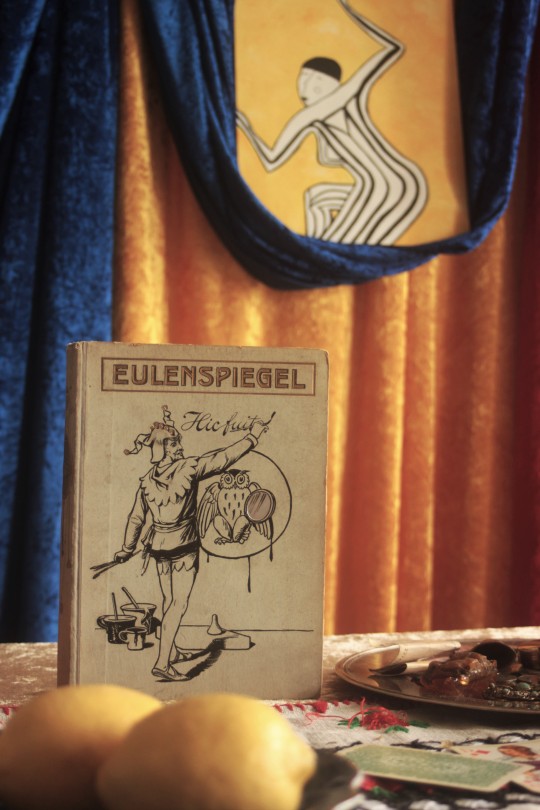



Here is the most beautiful edition I have at home, printed 1905, re-narrated by R. Münchgesang and with excellent illustrations by R. Trache
In picaresque manner Eulenspiegel takes the reader into prankfull and rough adventures, sometimes interlaced with subliminal wisdom and then again... just... disturbing... (!) In the literal interpretation his role is more comparable with a wandering mirror, who is reflecting the degeneration of moral and hypocrisy of contemporary society rather than an upholder of moral standards.
Eulenspiegel is one of the most known figure of German literature. Since 16th century the narration around him was resived several times and translated in other languages.
“Ein Narr kann mehr fragen, als sieben Weise beantworten können.”


#rascal literature#fool wisdom#fools#fool#Eulenspiegel#Till Eulenspiegel#folklore#volkstümliche Literatur#picaresque#comedy#satire#humour#German literature#literature#1905#old books#antiquarian#antiquarian book#book art
10 notes
·
View notes
Text
What is the Road finally to go?: Ariwarano Narihira's Farewell Song(Essay)

Ariwarano Narihira(在原業平)
@I've heard that it's the road to the day, but I don't think it was yesterday and today
This is recorded in Kokin Wakashu and The tale of Ise (125th stanza) as a poem of Ariwara no Narihira's death. I can't help but think that tomorrow will come as usual, but tomorrow won't come, and today, right here, my life will end. The picture shows Narihira somewhat lamenting.
When he was young, he was active in love, travel, and political activities. When it comes to the end of his life, he can't come up with any particularly good insight, and he only has the emotions of a commoner. He will be swallowed ... It is real around here.
Speaking of farewell poems, I have previously listed various people's farewell poems in my past logs. It's interesting to see things with momentum here and there.
@ Both the aggressor and the aggrieved are pottery, after being crushed, the original clay remains
Dosun Miura Muromachi military commander
It's filled with a kind of resignation.
@ If he falls me, I should pierce the cauldron of hell and cause a loss to the foolish demon of hell
Jurozaemon Mizuno Samurai of Edo "Kabukimono"
It's just the face of Picaresque.
At that time, I also made one.
@ If I look around as you divide the world, I will know the reason why I exist
...It's a pretty cool song, but when I'm on the brink of death, can I still be in this state? ...I'm not sure.
If death came to me suddenly and my blog was aborted, how would I give up? Of course, the fact that many stories have been uploaded means that my thoughts and sensibilities have generally been conveyed to the readers, and it can be said that the blog that I wrote until my death is complete. maybe. Mathematically, my blog is a "fractal". "A figure whose parts are equal to the whole"...the parts imply the whole, and the whole imply the parts.
6 notes
·
View notes
Note
Honestly wondering: how could la Celestina be a favourite book for you? Why did you decide to read it?? (As a Spanish person that's only met people who read la Celestina in school. Like... There are some spanish classics (la Vida es sueño, realist novels, even el Quijote) that I could see people reading for fun/leisure but... To me la Celestina has never been among them)
Read it for my picaresque literature class. Really liked how it depicted witchcraft, the pseudo-sympathetic framing of Celestina herself, and all the asides to the reader the characters would make. There are other books I read in that class that I might’ve liked more (Lazarillo de Tormes, Moscow to the End of the Line, The Thief’s Journal), but none of them have stuck in my mind so long and inspired my own fantastical sensibilities.
Plus, none of the other books I read predated the novel itself, so I could use them for the “been out for awhile already” joke.
4 notes
·
View notes
Text

In my new Q&A with author Elwin Cotman about his short story collection "Weird Black Girls," one line instantly convinced me this was one to read: "Whenever I write a new story, I'm trying to write something different from the story before."
https://paulsemel.com/exclusive-interview-weird-black-girls-author-elwin-cotman/
📖👧🏿👧🏾👧🏾👧🏿
#ElwinCotman#ElwinCotmanInterview#ElwinCotmanWeirdBlackGirls#ElwinCotmanWeirdBlackGirlsInterview#Books#Reading#AuthorInterview#AuthorInterviews#CosmicHorror#PsychologicalHorror#Picaresque#ShortStory#ShortStories
0 notes
Text
Day One Thousand One Hundred and Nineteen
And I am a writer, writer of fictions
I am the heart that you call home
And I've written pages upon pages
Trying to rid you from my bones
I am a writer, I am all that you have home
Home
And I've written pages upon pages
Trying to rid you from my bones
My bones
My bones
1 note
·
View note
Text

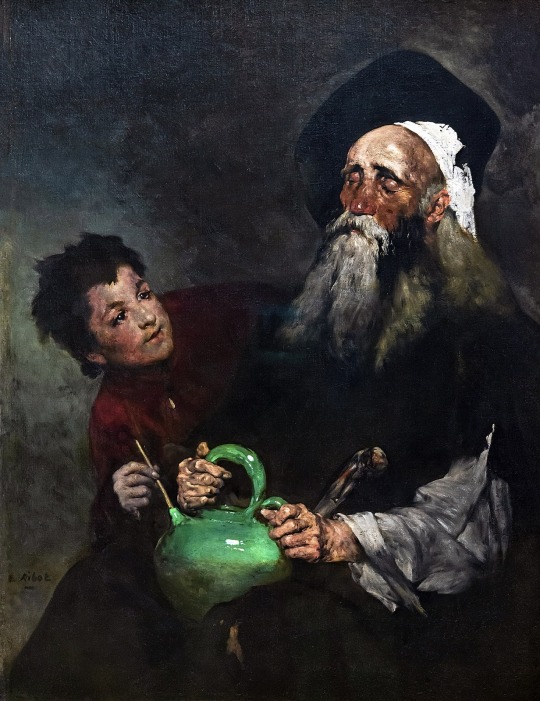
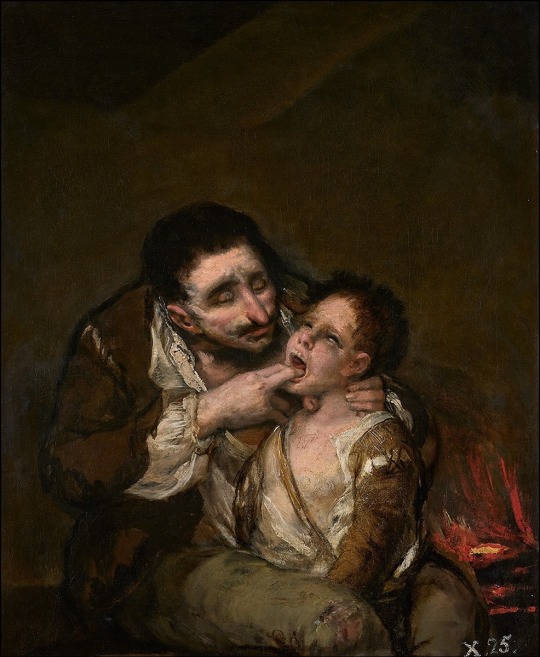

Luis Menéndez Pidal, El Lazarillo de Tormes (1900)
Théodule Ribo, Lazarillo de Tormes et son maître aveugle (1870s)
Francisco de Goya, Lazarillo de Tormes (1820)
Luis Santamaría y Pizarro, Lazarillo de Tormes (1887)
Lazarillo de Tormes, Francisco de Goya, España, 1810
Sátira sobre la miseria.
Romanticismo
Literatura
Técnica: Óleo ( 80 x 65 cm.)
Escrito por: Miguel Calvo Santos
Realizada durante la Guerra de la Independencia contra Francia (y por tanto época en la que Goya tenía pocos encargos), esta obra representa una escena del famoso y atemporal libro Lazarillo de Tormes.
Francisco de Goya oscurece su paleta, pero deja ver —gracias a la luz de las llamas de la derecha— al ciego metiendo los dedos en la garganta de su lazarillo para asegurarse de que no se ha comido una longaniza (dejándole a él con un simple nabo). Por supuesto, el pícaro no le pudo dar gato por liebre a su jefe, y acabó vomitando el manjar, aunque como vemos, está dispuesto a pasar la incomodidad de la inspección bucal con tal de haber podido saciar su hambre miserable.
Porque la miseria es la auténtica protagonista del cuadro, como lo era del libro. Miseria física, moral, y por supuesto social. De ahí esos personajes harapientos, grotescos, absolutamente caricaturescos, que viven en la penumbra de un país en el que cada cual busca su aprovechamiento sin pensar en los otros.
La obra, como podemos observar, preludia la oscuridad cromática y temática de las que serían sus fascinantes Pinturas Negras, con las que Goya decoraría su casa en sus tiempos más oscuros.
[x]
6 notes
·
View notes
Text

#paris#organ grinder#setzer#seltzer bottle#messenger#boy#messenger boy#street scene#street#picaresque#funny#spritz
0 notes
Text
This "picaresque and sinister" man, as Judith Wright called him, lost 200 head of her family's cattle.
"Killing for Country: A Family History" - David Marr
#book quote#killing for country#david marr#nonfiction#wentworth d'arcy uhr#picaresque#sinister#judith wright#cattle#livestock#cattle drover#drover
0 notes